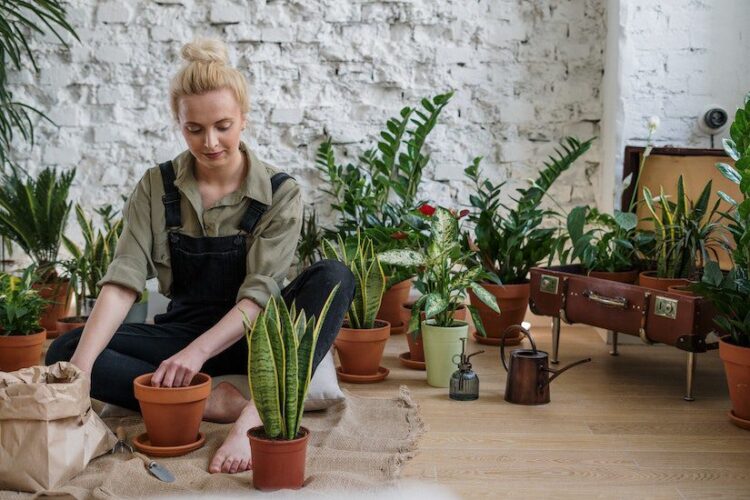An addiction to gardening is not all bad when you consider all the other choices in life.
That quote, attributed around the internet to either Cora Lea Bell or Cora Lee Bell, might just resonate with you if you are a person in recovery from a substance use disorder. While we never make light of any kind of addiction (substitute addictions, after all, can be a significant issue for a person in recovery), we think the overall point here stands. Getting deeply interested in gardening beats being deeply interested in drugs or alcohol.
In fact, getting into gardening can be an excellent way to support your sobriety.
The Beauty and Benefits of Gardens and Gardening
A garden is the place millions of people go to touch the earth, to smell flowers—to use some of that fabled human brainpower in the cause of better participating with natural processes in the place they call home. It serves as an art project, an organic produce market, a spiritual practice, a pharmacy. It offers ongoing lessons in ecology, biology, chemistry, geology, meteorology. Gardening imparts an organic perspective on the passage of time. It bestows on its practitioners a genuine sense of admiration for the plants, the soil, the sun, the water.
So wrote Jim Nollman in Why We Garden: Cultivating a Sense of Place, and his insights point to some of the ways in which gardening can be an excellent practice for those in recovery. Gardening taps into creativity, provides engaging activity, promotes healthy eating, and can serve as a connection to an individual’s spirituality—all of which support sobriety.
Carol Williams expressed something similar in Bringing a Garden to Life:
People are turning to their gardens not to consume but to actively create, not to escape from reality but to observe it closely. In doing this they experience the connectedness of creation and the profoundest sources of being. That the world we live in and the activity of making it are one seamless whole is something that we may occasionally glimpse. In the garden, we know.
A Little Less Poetic Language About Garden Benefits
Maybe the quotes above feel a little too grand and poetic to give you a solid sense of how interacting with plants can be a helpful practice for supporting mental well-being and sobriety. Here, then, are some thoughts from Gardening–Therapy for Mind, Body and Soul from Proxima Health System in Atlanta:
Why do plants have such a positive impact on us? There are a number of reasons, including:
- They have a predictable cycle of life that provides comfort in our time of rapid change.
- They are responsive but non-threatening.
- They form no opinions or judgments about their caregivers.
- They soften our man-made environment.
- They enable us to change or improve our environment.
- They promote relaxation and tranquility.
Again, each of those bullet points highlights the ways in which plants and gardens can be of benefit to a person in recovery from a substance use disorder.
Peace, Serenity, and Hope for the Future
Lindley Karstens identifies why spending time gardening can be so refreshing to our bodies, minds, and even souls.
Gardening is about enjoying the smell of things growing in the soil, getting dirty without feeling guilty, and generally taking the time to soak up a little peace and serenity.
A garden—no matter how big or how small (even a small houseplant will do)—is a symbol of hope. In the words of Marina Schinz, photographer and author of Visions of Paradise:
To create a garden is to search for a better world. In our effort to improve on nature, we are guided by a vision of paradise. Whether the result is a horticultural masterpiece or only a modest vegetable patch, it is based on the expectation of a glorious future. This hope for the future is at the heart of all gardening.
Hope for the future is, of course, also at the heart of the recovery journey. Gardening can help that journey go a little more smoothly while adding beauty and hope to your day-to-day experience.
Sobriety is Like Sunlight: It Allows You to Grow
At Bel Aire Recovery Center in Kansas, we help people reclaim their sobriety—and their life. Drugs and alcohol prevent you from growing into the person you want to be. Sobriety, on the other hand, is fertile soil for growth and possibility. If you are struggling with a substance use disorder, we can help bring the sunshine back into your life so that you can get back to growing and thriving.
All quotes found in this blog entry were sourced here.




